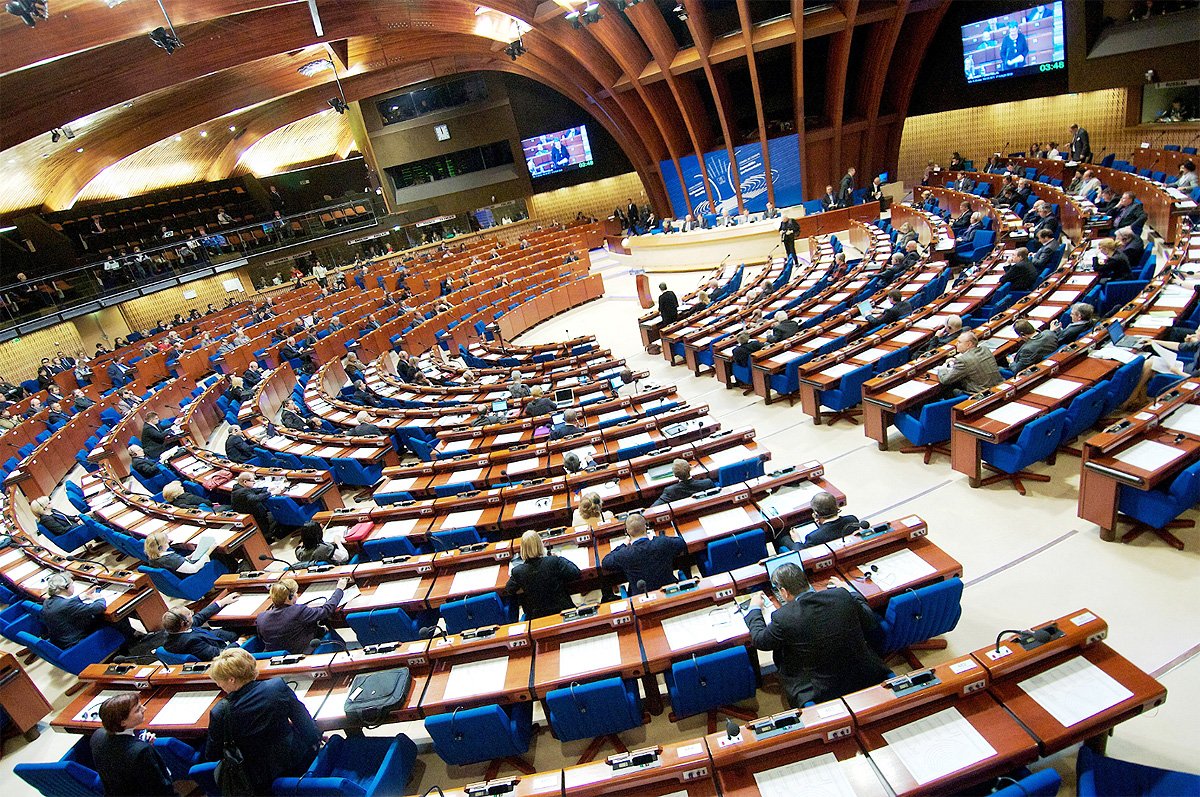This week the Parliamentary Assembly of the Council of Europe (PACE) ratified Russia’s full rights following a six-year suspension that stemmed from the crisis in Ukraine. Ninety-six PACE officials backed the decision, while 44 voted against it and another seven abstained from voting.
“The assembly . . . resolves to ratify the credentials of the Russian Federation,” reads the resolution that was adopted by the assembly at its winter session in Strasbourg, according to TASS.
The Kremlin had withdrawn the Russian delegation from PACE in protest to the suspension of its voting rights in 2014. In 2017, Russia halted its scheduled €32.8 million ($37.3 million) contribution to the Council of Europe’s annual budget, which totals €316 million ($360 million).
Russia’s voting rights were partially restored last year, however, when its delegates could vote in the election of the body’s next secretary general. Since then, Russia has fulfilled a series of recommendations that are included in Resolution 2292 (2019) regarding the country’s return to what is the parliamentary arm of the Council of Europe, a 47-nation international organization dedicated to upholding human rights, democracy and the rule of law.
Wednesday’s vote in Strasbourg underscored Russia’s role in prisoner swaps in Ukraine and preparations for additional, similar operations by Moscow and Kiev. The resolution acknowledged “some progress” about the implementation of the Minsk Agreements, which are aimed at alleviating the situation in Ukraine.
“With regard to the financial obligations towards the Council of Europe, the Russian Federation has paid all due contributions to the ordinary budget and partial agreements,” the resolution reads. “Unpaid interests are the subject of discussions in the Council of Europe Committee of Ministers.”
The PACE Monitoring Committee is required to report if and how Russia has implemented its obligations within the Council of Europe framework by the end of April.
“The Monitoring Committee has resumed its work with regard to the Russian Federation and organized a number of hearings, which will be taken into account by the co-rapporteurs in their ongoing preparation of the report,” the document reads. “The Russian delegation has co-operated fully with the Monitoring Committee.”
Speaking with National News Service, which is based in Moscow, Vladimir Dzhabarov, the first deputy chairman within Russia’s Federation Council Committee on Foreign Affairs, called Russia’s return into PACE “an ordinary event.” He believes that the decision to return powers to Russia is not linked to the contributions of the country.
“Just Russia – a major European country, and without our participation the value of this organization falls sharply,” the media outlet quoted Dzhabarov as saying on Thursday.
Not everyone is happy about Russia’s return to PACE. The Ukrainian delegation has threatened to leave PACE over Russia’s return.
“Don't expect,” said Oleksiy Goncharenko, a member of Ukraine’s delegation, in response to a question about Ukraine stopping working with PACE.
“You said that you need a dialogue - we are also for dialogue,” TASS quoted Goncharenko as saying on Wednesday. “Why will we leave if you want to have a dialogue?”







 The number of evacuees from flooded areas in Kazakhstan has reached 97,852 people, including about 32,856 children since March 27.
The number of evacuees from flooded areas in Kazakhstan has reached 97,852 people, including about 32,856 children since March 27.
 The Islamic holy month of fasting, Ramadan comes to an end this week with the celebration of a joyous festival called Eid (meaning “festival” in Ar...
The Islamic holy month of fasting, Ramadan comes to an end this week with the celebration of a joyous festival called Eid (meaning “festival” in Ar...
 Iran's senior military leaders described the drone and missile attack on Israel on April 14 night as “successful".
Iran's senior military leaders described the drone and missile attack on Israel on April 14 night as “successful".
 Iranian President Ebrahim Raisi warned Israel that it would face a "real and extensive" response if it makes any "mistake" following Tehran’s missi...
Iranian President Ebrahim Raisi warned Israel that it would face a "real and extensive" response if it makes any "mistake" following Tehran’s missi...



